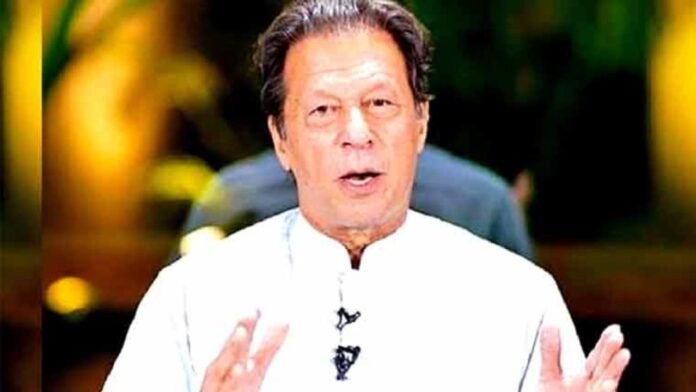Imran Khan, the founder of the PTI, has offered a conditional apology for May 9. He offered to say sorry if they showed CCTV records of the burning on that day. However, if the records expose PTI workers’ involvement in the burning. He will expel them from the party and punish them severely, including giving a public apology.
Khan’s statement represents his demand for transparency coupled with answerability. He argues that guilt should not be presumed until tangible proof of any PTI member’s participation in the incident exists. This strategy ensures that the action is backed up by provable facts rather than allegations or speculations.
Nationwide Protests Call May 9 Insights
On the evening of August 13th, the country will come out in street protests calling for “real freedom.” According to him, he did not call for May 9th. Still, peaceful demonstrations in front of military installations like cantonments and General Headquarters (GHQ) are within the rights granted by the constitution. His appeal is made against what he sees as unfairness meted towards his party and supporters.
He also mentioned that petrol bombs were used exclusively in Zaman Park. Lahore, during the period when police were deploying rubber bullets and tear gas. This statement is an attempt to address allegations that PTI supporters were involved in violent activities across different locations.
Reactions and Statements in Adiala Jail May 9 Insights
In a recent interaction with journalists at Adiala Jail, Imran Khan addressed various concerns and allegations surrounding the May 9 incidents. He responded to a spokesperson’s statement, which claimed they maintain their position on the apology related to May 9. Khan asserted that they would not forgive the events of that day because his supporters were subjected to violence, and the party was obstructed from participating in the elections.
Khan’s response highlights his frustration with what he views as a lack of justice and transparency. He contends that if he had been fearful of the events of May 9, he would not have demanded the formation of a judicial commission to investigate them. Furthermore, he criticized the Supreme Court for not addressing this. He also questioned why the dignity of national institutions is given precedence over that of a political party leader.
Evidence and Accountability May 9 Insights
Khan has challenged the authorities to present evidence of PTI members’ involvement in the incidents on May 9. He criticized the hiding of evidence, asserting that such actions are criminal. By demanding the release of CCTV footage and examining who was involved, Khan positions himself as a proponent of accountability and transparency.
He also responded to questions about the presence of petrol bombs on May 9. Khan asserted that petrol bombs were used only in Zaman Park and nowhere else. He emphasized that if any PTI officials were found involved in throwing petrol bombs at sensitive buildings. They should be given severe punishment. His stance is clear: he advocates for accountability but demands evidence before assigning blame.
Criticism of Political and Institutional Integrity May 9 Insights
Khan’s criticism extends beyond the May 9 incidents to broader concerns about political corruption and institutional integrity. He accused political opponents of rigging elections and imposing corrupt individuals on the country. He defended the army as a national institution that must be protected and criticized its involvement in political issues, particularly in comparison with Bangladesh’s military actions.
Khan has voiced concerns about the potential escape of prominent politicians, including Nawaz Sharif, Asif Zardari, and Shahbaz Sharif. He has called for their names on the exit control list (ECL) to prevent any possible flight from the country. This measure is seen as a precautionary step in light of what Khan perceives as a looming crisis in the country.
Concerns and Future Outlook
Khan has expressed fears that significant events might be forthcoming in Pakistan, similar to what happened in Bangladesh with Haseena Wajid’s escape. He has highlighted the issues of economic mismanagement and rising inflation, comparing Pakistan’s dire situation unfavorably with Bangladesh’s. His call to action and demands reflect his ongoing efforts to mobilize support and address perceived injustices while advocating for political and institutional reforms.
Imran Khan’s statements and actions demonstrate a complex interplay of demands for evidence, calls for nationwide protests, and broader critiques of Pakistan’s political and institutional landscape. His conditional apology and challenges to the authorities are part of his wider strategy to address and rectify the country’s significant political and social issues.


